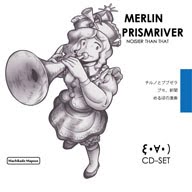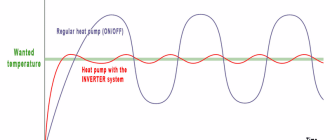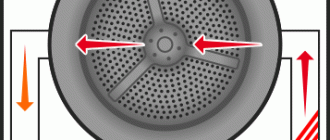
Sound Off: Why Some Air Conditioners Are Noisier Than Others
Air conditioners have become an essential part of our lives, allowing us to stay cool and comfortable during the hot summer months. However, if you’ve ever owned an air conditioner, you may have noticed that some models are noisier than others. Have you ever wondered why this is the case? In this article, we will explore the factors that contribute to the sound produced by air conditioners and why some units are noisier than others.
One of the main factors that determine the level of sound produced by an air conditioner is the type and quality of the air compressor. The compressor is responsible for circulating the refrigerant and maintaining the desired temperature. Some compressors are built with noise-reducing technologies, such as insulated walls and vibration dampeners, which help to minimize the sound produced. On the other hand, cheaper or older models may have compressors that lack these features and therefore generate more noise.
Off-balance fans can also be a source of noise in air conditioners. The fan is responsible for drawing in and distributing the air throughout the room. If the fan blades are misaligned or damaged, it can create turbulence and result in a louder operation. Regular maintenance and cleaning can help prevent these issues and ensure that the fan operates smoothly and quietly.
In conclusion, the sound produced by air conditioners can vary depending on several factors. The type and quality of the compressor, as well as the condition of the fan, play a significant role in the noise level of the unit. By understanding these factors, you can make informed decisions when choosing an air conditioner that fits your needs and ensures a peaceful and quiet environment.
Understanding the Noise of Air Conditioners
Why are some air conditioners noisier than others? This is a common question that many homeowners have. The noise level of an air conditioner can vary depending on several factors.
One factor is the type of air conditioner being used. Some types of air conditioners, such as window units, tend to be noisier than others. This is because these units are typically smaller and have fewer noise-reducing features compared to larger central air conditioning systems.
Another factor is the quality of the air conditioner. Cheaper, lower-quality units may produce more noise compared to higher-end models. Higher-quality air conditioners often have better insulation and soundproofing, which helps to reduce noise levels.
Additionally, the age and condition of the air conditioner can affect its noise output. Older units may become noisier over time as components wear down or become loose. Regular maintenance and cleaning can help keep an air conditioner running quietly.
When comparing different air conditioner models, it is important to consider the decibel (dB) rating. This rating measures the noise level of the air conditioner, with lower dB ratings indicating quieter operation. Many manufacturers provide the dB rating of their air conditioners, making it easier for consumers to compare noise levels when shopping for a new unit.
In conclusion, there are several factors that can contribute to the noise level of an air conditioner. The type, quality, age, and condition of the unit all play a role in determining how noisy it will be. Understanding these factors can help homeowners make informed decisions when purchasing or maintaining their air conditioning systems.
Importance of Noise Levels in Air Conditioners
When it comes to air conditioners, some are noisier than others. It is essential to understand why this is the case and the importance of noise levels in air conditioners.
Air conditioners that emit excessive noise can be annoying and disruptive. They can interfere with conversations, sleep, and overall peace and quiet in a room or building. This is why it is crucial to consider the sound factor when purchasing an air conditioner.
Noise levels in air conditioners are influenced by several factors. One of the main reasons why some air conditioners are noisier than others is due to the type and quality of the compressor. Air conditioners with older or lower-quality compressors tend to produce more noise.
In addition to the compressor, the design and construction of the air conditioner can also impact noise levels. Units with poor insulation or vibration control are more likely to generate higher levels of noise. Proper insulation and vibration-dampening features can significantly reduce the sound emitted by the air conditioner.
Another factor that contributes to noise levels is the fan speed. Air conditioners with high fan speeds tend to be louder than those with lower fan speeds. It is essential to find a balance between cooling efficiency and noise output when selecting an air conditioner.
Moreover, maintenance plays a role in the noise levels of air conditioners. Regular cleaning and servicing prevent dirt and debris from accumulating, which can create rattling and increase noise levels. Routine maintenance also ensures that all components are in good working condition, minimizing any potential noise issues.
In conclusion, the noise levels in air conditioners can vary from one unit to another due to various factors. Considering the importance of noise levels is crucial, as excessive noise can be disruptive and impact the overall comfort and experience of the users. Choosing an air conditioner with a quiet operation is beneficial for a peaceful and enjoyable environment.
Decibel Ratings and Their Significance in Air Conditioners
When it comes to air conditioners, some are noisier than others. But why is that?
The answer lies in the decibel ratings and their significance in air conditioners. Decibels (dB) are a unit of measurement used to quantify sound. In the context of air conditioners, decibel ratings indicate the level of noise produced by the unit.
Air conditioners with higher decibel ratings tend to be louder than those with lower ratings. The noise level can vary depending on factors such as the size, technology, and design of the unit.
So why do some air conditioners produce more noise than others? There are a few reasons for this:
- Size: Larger air conditioners often produce more noise than smaller ones. This is because bigger units require more powerful components, which can generate more noise during operation.
- Technology: Different air conditioning technologies can also affect the noise level. For example, ductless mini-split systems tend to be quieter than central air conditioning systems.
- Design: The design of the unit can impact its noise level. Factors such as the placement of the fan and the quality of insulation can play a role in how noisy the unit is.
Understanding decibel ratings and their significance can help consumers make informed decisions when choosing an air conditioner. If noise levels are a concern, opting for units with lower decibel ratings may be preferable.
Ultimately, the noise level of an air conditioner is a subjective preference. Some individuals may not mind a louder unit, while others may prioritize a quieter operation. It is important to consider personal preferences and the specific needs of the environment in which the air conditioner will be installed.
Comparing the Noise Levels of Different Air Conditioner Brands
When it comes to air conditioners, noise levels can vary significantly between different brands. Why is that? Let us delve into the sound factors that make some air conditioners noisier than others.
One of the primary reasons for varying noise levels is the quality of the compressor and fan motors used in the air conditioner. Cheaper brands may use lower-quality motors, resulting in louder operation. On the other hand, premium brands often invest in high-quality components to reduce noise levels and improve overall efficiency.
Another factor affecting noise levels is the design and construction of the unit. Air conditioners with poor insulation and vibration control will likely produce more noise. Brands that prioritize noise reduction will implement features such as insulated cabinets, rubber grommets, and vibration-dampening mounts to minimize noise caused by the unit’s operation.
The location of the air conditioner can also impact noise levels. If the unit is installed close to living spaces or bedrooms, the noise will be more noticeable. Some brands offer models with dedicated “quiet” or “silent” modes, which lower the fan speed and compressor noise to create a more peaceful environment.
Additionally, the size and capacity of the air conditioner can affect noise levels. Generally, larger units with higher cooling capacities produce more noise due to the larger fan and compressor required. However, high-end brands may incorporate advanced technologies, such as variable speed fans and inverter compressors, to reduce noise levels while maintaining efficient cooling.
To determine the noise levels of different air conditioner brands, it is essential to refer to the sound ratings provided by manufacturers. The most common rating is the decibel (dB) scale, which measures the intensity of sound. Lower decibel ratings indicate quieter operation, while higher ratings indicate louder operation.
When comparing noise levels, it is crucial to consider personal preferences and the noise tolerance of individuals. Some individuals may not be bothered by slightly louder air conditioners, while others may prioritize a whisper-quiet operation.
In conclusion, the noise levels of air conditioners can vary due to several factors, including the quality of components, design features, installation location, and unit size. Understanding these factors and referring to manufacturer-provided sound ratings can help consumers choose an air conditioner brand that meets their noise preferences.
Factors Affecting the Noise Levels of Air Conditioners
When it comes to air conditioners, some units are noisier than others. Noise levels can vary depending on a variety of factors, making some air conditioners louder while others remain relatively quiet.
One of the main reasons why some air conditioners are noisier than others is the design and construction of the unit. Cheaper or older models may not have the same level of sound insulation as newer or higher-end units. This means that more sound can escape from the air conditioner, resulting in a louder operation.
Additionally, the type of compressor used in the air conditioner can also contribute to noise levels. Some compressors are designed to be quieter than others, using advanced noise reduction technology to minimize sound output. Units with quieter compressors will generally produce less noise during operation.
Another factor that affects the noise levels of air conditioners is the fan speed. Air conditioners with multiple fan speed settings allow users to adjust the airflow to their liking. However, higher fan speeds tend to produce more noise as the fan blades spin faster and create more turbulence. Lower fan speeds, on the other hand, can result in quieter operation.
Additionally, the location of the air conditioner can impact noise levels. If an air conditioner is installed close to living areas or bedrooms, its noise may be more noticeable and disruptive. Installing the unit far away from these areas or using sound barriers can help mitigate noise-related issues.
In conclusion, there are several factors that contribute to the noise levels of air conditioners. Factors such as design, compressor type, fan speed, and installation location all play a role in determining how quiet or noisy an air conditioner will be. By considering these factors and choosing the right unit, it is possible to enjoy the benefits of air conditioning without the unpleasant sound of a noisy system.
Role of Compressor in Air Conditioner Noises
When it comes to air conditioners, some are noisier than others, and one of the main culprits behind this discrepancy is the compressor. The compressor is a vital component of an air conditioner that plays a significant role in creating the sound that you hear.
The compressor is responsible for circulating the refrigerant throughout the air conditioning system. It compresses the low-pressure refrigerant gas and converts it into a high-pressure gas, which then flows through the condenser coil to release heat. This process is repeated continuously to cool the air in your space.
However, this operation of the compressor inherently generates noise due to the mechanical and electrical components involved. As the compressor works, it produces vibrations that can be transmitted through the unit’s structure causing noise. Additionally, the movement of refrigerant within the compressor can also contribute to the noise level.
The design, quality, and condition of the compressor can greatly influence the noise level of an air conditioner. An older or poorly maintained compressor may produce more noise due to wear and tear or accumulation of dirt and debris. On the other hand, newer models and well-maintained compressors are built with noise reduction features and improved insulation to minimize sound generation.
Furthermore, the size and capacity of the compressor also play a role in the noise level of an air conditioner. Larger compressors generally produce more noise than smaller ones as they tend to require more power and create greater vibrations.
In conclusion, the compressor is a significant factor in determining the noise level of an air conditioner. While newer models and well-maintained compressors are designed to minimize noise, factors such as age, maintenance, and size can influence the sound produced by the compressor. Understanding the role of the compressor can help you choose an air conditioner that meets your noise requirements.
Impact of Airflow on the Noise Produced by Air Conditioners
Airflow plays a significant role in the sound production of air conditioners, making some units noisier than others. The sound emitted by an air conditioner is generated by various components and mechanisms within the unit, and airflow is one of the key factors influencing the level of noise produced.
When air flows through the different components of an air conditioner, it can create turbulence, which in turn generates noise. The speed and direction of airflow can affect the intensity and frequency of this noise.
In some air conditioning units, the design and placement of the fan can contribute to increased noise levels. If the fan blades are misaligned or damaged, they can create an uneven airflow pattern, leading to turbulent flow and increased noise production. Similarly, if the fan is positioned too close to other components or if the airflow is obstructed, it can create additional noise.
The size and shape of the air conditioner’s ductwork can also impact the noise level. If the ducts are too small or poorly designed, they can restrict airflow and increase noise. On the other hand, ducts that are too large can result in low airflow velocity, causing a reduction in noise but potentially affecting the cooling efficiency of the unit.
Furthermore, the overall build quality and insulation of the air conditioner can affect the noise produced by airflow. Air conditioners with better insulation can help dampen the sound generated by airflow, resulting in quieter operation. Additionally, the materials used in the construction of the unit, such as sound-absorbing panels or vibration-damping technologies, can also contribute to reducing noise.
| – Fan design and placement |
| – Fan blade misalignment or damage |







